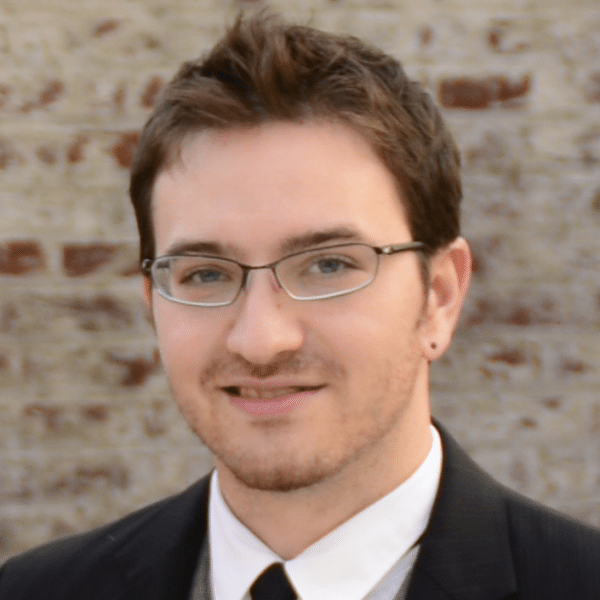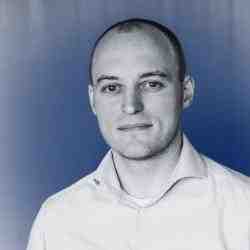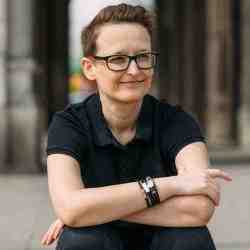Introduction
Andrew is enabling the entire the healthcare value chain to address the issue of ‘non-adherence to medicine regimens’ in India and 10 other countries.
The New Idea
Using reliable technology and unifying all key stakeholders, Andrew has built a model of care that addresses the growing problem of non-adherence in India. Having shown success with Tuberculosis, Andrew has now paved a way for his user centric model to be scaled across other disease specific areas. Through his enterprise, Everwell Health Solutions, Andrew has built a low-cost solution (less than $3-6 dollars per patient for 6-8 months) that leverages readily available technology to build a platform called the Everwell Hub that integrates their adherence technology called 99DOTS with other demonstrated adherence solutions, alongside broader patient support through a digitized cascade of care. By enabling the entire healthcare value chain (treatment stakeholders such as patients, health professionals, public/private healthcare facilities, and policy makers) using technology, that unifies emerging healthcare innovations seamlessly to offer patients an enabling and supportive environment to ensure adherence. This unified technology platform, right now in the Tuberculosis (TB) care vertical, seeks to address some of the critical issues in the healthcare services space, such as duplication of efforts, better utilization of limited resources, interoperability of technologies, inconsistent features and quality, complexity for users and trainers etc.
The 99DOTS innovation empowers patients to take medication independently without needing to report to the previous standard of care, directly-observed therapy (DOT) - patients take their treatment regimens and engage with the health system through a low-cost intensive support system - creative packaging of medicines, sending gentle reminders in case of non-adherence, counselling of patients in regular intervals, and generating a realistic dataset for governments for future strategies. To ensure the most patient-appropriate technologies, the platform supports a range of solutions that give patients and providers more choices with technology-assisted care. The platform aims to address the root-causes related to non-adherence by empowering patients to overcome issues such as stigma, forgetfulness, expenditure on traveling to health care centers, gap in communication between healthcare professionals and patients.
Andrew and the entire Everwell team, in partnership with the Indian government, have scaled adherence innovations, as well as broader patient support by integrating with the revised ICT platform for TB called Nikshay 2.0 in 2018. The platform ensures integration of patient workflows through the cascade of care, adherence technologies, diagnostics and tests, staff and patient engagements and alerts. It has linked public and private facilities across the country to one platform called 99DOTS. Everwell’s model that addresses issues such as cost of monitoring, uncomfortable processes of adherence, inefficient use of resources and non-accurate data, is now exploring other ways to support better adherence practices in other diseases. This model of engagement with the government shows that the combination of using technology and bringing together health care partners can maximize the impact of other innovations in the health field.
The Problem
There exist common systemic barriers that prevent adherence of care, monitoring and medication usage across diseases, such as a lack of patient-centric approaches to support adherence, efficient use of resources, difficulty of collecting and effectively using reliable data in real-time that can be used for informed decision making, stigma around open adherence and high costs of monitoring. The solutions that are out there often do not scale or are ineffective by not combining technology with a deep understanding of the human components of the problem and this often leads to further alienating patients and stakeholders in the system. This is further exacerbated due to a lack of understanding that patient adherence is not a one size fits all solution and often differs depending on disease type. The social, economic and health cost continues to grow all over the world due to non-adherence.
In the case of TB, India represents a quarter of all cases globally. Worldwide India is the country with the highest burden of both TB and MDR-TB. There is an estimated incidence of over 100,000 multi-drug resistant TB patients among the notified cases each year. India is also the country with the second highest number (after South Africa) of estimated HIV associated TB cases. Global TB report 2017 the estimated incidence of TB in India was approximately 28,00,000 accounting for about a quarter of the world’s TB cases. In the year 2016, around 4.8 lakhs people died due to TB in India.
Quality healthcare outcomes depend upon patients' adherence to recommended treatment regimens. Patient non-adherence can be a pervasive threat to health and wellbeing and carry a huge economic burden on patients and governments. Government spending on treating a TB patient comes to be around $100-$150 per patient for six months of treatment, while patients spend between $50 to $100 on travel and food. In some disease conditions, more than 40% of patients have challenges with recovery due to issues around non-adherence.
Traditional programmes to support adherence like DOTS put undue burden on patients throughout their recovery. TB care service globally for new cases of drug-sensitive Tuberculosis involve a 6-8 month long strict medicine. While practices are changing, global TB programmes have historically relied on DOTS which requires patients visit healthcare centres and take medicines in front of a physician for each dose. If the patient misses doses or has inconsistent adherence, there is a significantly higher chance of relapse of the disease, even after the completion of treatment. Moreover, the expenditure incurred on travelling to healthcare centres, stigma attached with the disease, side effects of medicines, attitudes of patients, cultural context, social support, and emotional health challenges play crucial role in patients’ non-adherence behaviour. There are other significant areas to address such as timely and accurate diagnosis of the disease, better counseling and engagement between staff and patients, nutritional and other social support for patients, and more effective and patient-friendly regimens. However, even with other support mechanisms in place, adherence is a critical part of recovery. A significant barrier to effective medical treatment, therefore, is systematic adherence support for patients during treatment. Even though the treatment is free in the government run hospitals, non-adherence contributes to lower treatment success rates, development of drug-resistant strains of TB, and higher burden to TB programmes globally.
The Strategy
Andrew believes that simply introducing new and complex technological solutions to solve problems at scale is not the answer. The technology must be user centric, cost effective and scalable. Hence, he identified mobile phone (access to a basic mobile phone, even when shared across families) as a readily available and widely used platform and built the technology infrastructure around it. He linked the mobile phone to all aspects of the TB care value chain- such as creative packaging of medicines with unpredictable hidden phone numbers. Every time a patient takes in medicine, a hidden number gets revealed behind the dispensed pill flap of the blister packaging. Patients engage with the system by making a free call to that number and let the health professionals know that they have taken the medicine. In other domains, this engagement can be contextualized to all SMS, USSD, or IVR forms of engagement. In case the system does not hear from the patient, healthcare staff are notified and can follow up with essential human counseling around the importance of adherence, recovery support, or explaining adverse side effects to better support patients. If technology-aided adherence solutions like 99DOTS are not appropriate for the patient, then the counselling center counsels the patient to resume or seek out alternative methods for support such as family/community DOTS or center-based treatment.
Andrew noticed that in the healthcare space, the nature of relationship between the patient and the healthcare professionals determines the success of an intervention. Moreover, the frequency of conversations enables a patient to receive treatment in a supportive
environment. Based on the incoming signals from 99DOTS, healthcare staff and counselling services can employ personalized counseling and differentiated care for those patients who might need extra support. In the 99DOTS regimen, health professionals are equipped with relevant information about patient behavior, side effects of medicines for course correction, regional data about the disease for easy evaluation and target setting etc.
‘99DOTS’ seeks to enable patients by offering them a comprehensive support system. They feel valued and cared for by the system, and can take their medications on their own terms. The technology infrastructure seamlessly integrates additional support verticals to enhance the experience of patients. For example: counselling, reminders, offers of support in case of side effects of medicines, designing creative packaging of medicines for easy access, easy integration of many other technologies by different developers.
When Andrew started working in the space of TB care, he noticed that the programme did not have access to real-time adherence data that would help in understanding ground realities and strategize for future interventions. Andrew and the Everwell team are continuously evaluating and adapting 99DOTS to ensure the data is accurate, patient appropriate, and generating actionable data to inform policy decisions.
From a sustainability perspective, Everwell’s philosophy is to release everything as open source and work with implementing partners to transition ownership of the program. The data generated is completely owned by the government or implementing partners. As the Indian government re-launched their TB programmed called as Nikshay 2.0, the adherence platform developed at Everwell became the backbone architecture for the new system. 99DOTS now has scaled across India and has provided care to more than 200,000 patients using adherence technologies (with over 8 million patients on the Nikshay platform), supported a cadre of 400,000 health professionals, brought together 70,000 public health facilities and 1,83,000 private healthcare facilities and has generated over 8 million health records as part of Nikshay. 99DOTS has started international expansion in countries like Myanmar, Bangladesh, Ukraine, Kyrgyzstan, Uganda, Ethiopia, Tanzania, and Namibia.
Andrew next sets his sights on influencing many other disease groups where adherence is a challenge. By documenting the process he followed, in particular in using leveraging the critical human component in healthcare to drive behavior change, Andrew is enabling many others in the health field to take this model forward to other areas of need. Through successful engagements with governments, implementing partners, donor agencies, and policy experts, he hopes that new innovations can empower the healthcare ecosystem and scale to continue providing better service delivery in the fight against TB and other public health diseases.
The Person
Andrew was born and brought up in Dallas, Texas, USA. While doing engineering at the University of Texas, he started developing interests in exploring ‘technology for social good’. During his engineering studies, he worked in several traditional engineering roles including autonomous vehicle design for a research lab and software design for a large financial organization. While important, he felt compelled to leverage his passion for engineering for critical, global social problems.
It was during an internship opportunity in Peru that he started understanding best practices in applying technology to impact society at large. He drew many insights from that experience such continuous assessment of sustainability while designing technology interventions, contextual appropriation of technology that leverages existing infrastructure, using engineering principles to solve real issues, and most critically valuing above all else the human aspect of any intervention, even when amplified by innovations in technology.
He went on to do his Masters in Philosophy at Cambridge University in Engineering for Sustainable Development. The field area for his thesis was working in Zambia, where he collaborated on a low-cost digital content platform for group learning through teacher mediation using tablets. The reality that technology alone is not a solution was reinforced through his experience, and he decided to focus on working in areas that join technology with sociology, ethnography, and domain experts to seek out areas for impact.
After his studies, he joined Microsoft Research India to take these learnings forward. Alongside a team of experienced experts in developing and deploying technologies for emerging markets, he learned about the critical problem of Tuberculosis and how non-adherence was driving lower treatment success and the development of drug-resistant strains of TB in India. Based on learnings from other domains and projects, 99DOTS was born and began work in Bangalore in 2013. It has been 6 years that he has invested in solving this issue in India, and adapting the solution to new contexts globally. He co-founded Everwell Health Solutions to further champion innovations for healthcare and the underlying philosophy of patient support, which is registered as a for profit in India and is now working with the government of India to take healthcare innovations to scale.




